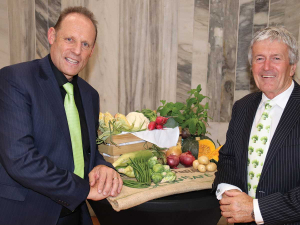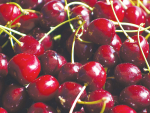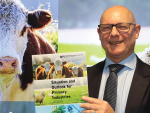The world's population seems to have lost some of the value in consuming fresh fruit and vegetables, according tor the President of United Fresh, Jerry Prendergast.
His comments came at a function, held recently at Parliament, to launch the United Nations International Year of Fruit and Vegetables - conceived to raise awareness of the contribution fruit and vegetables make to society, especially in terms of nutrition, dietary diversity and health. It also aimed to showcase the economic contribution that they make to countries and their role in environment and sustainability.
United Fresh works with HortNZ and Plant and Food to promote the intrinsic values of fruit and vegetables to consumers in NZ.
Prendergast says the key objective in NZ during the year is to really raise the profile of fresh fruit and vegetables.
"We want to put them on a pedestal... with a particular focus on the consumer," he says.
"The risk is that other products have got salts, fats and sugars in them, which are addictive and are very attractive in terms of the palette. If we don't continue to highlight the nutritional value of the fresh fruit and vegetables, we have the potential to go backwards."
Prendergast says NZ is in a unique position where a product is growing in the field one morning and the next morning, sitting on the shelf in a local supermarket. He says the sector has to ensure that consumers understand the value of eating within a season - code for fresh - and they understand the nutritional value of doing this.
"We are using the international year of fruits and vegetables to highlight to consumers this value proposition," he says.
During the year, United Fresh will be working with HortNZ and Plant and Food Research to promote the work all the organisations are doing. Prendergast says a key item of note is the excellent work done by Plant and Food Research scientists to develop new cultivars of fruit and vegetables that appeal to consumers.
One of the challenges facing all primary sectors, and horticulture is no exception, is consumer demand for more ready meals or convenience products. However, Prendergast believes that the hort sector is up to meeting that challenge.
"It's about understanding how to use them, in a way that is quick and easy. These options are already availble in NZ because if you look at the salad lines in the supermarket now, they are absolutely outstanding. There is a whole range of products which simply require the addition of some avocado, tomato and capsicum and there is a very easily prepared very nutritious meal," he says.


















